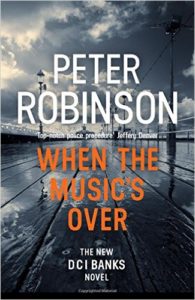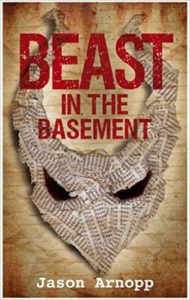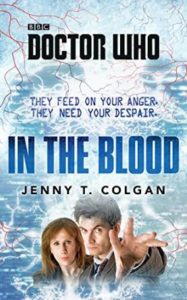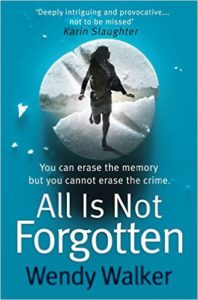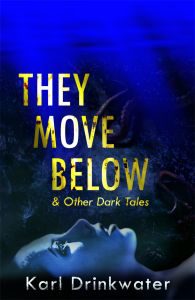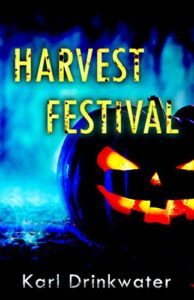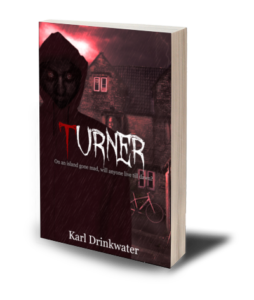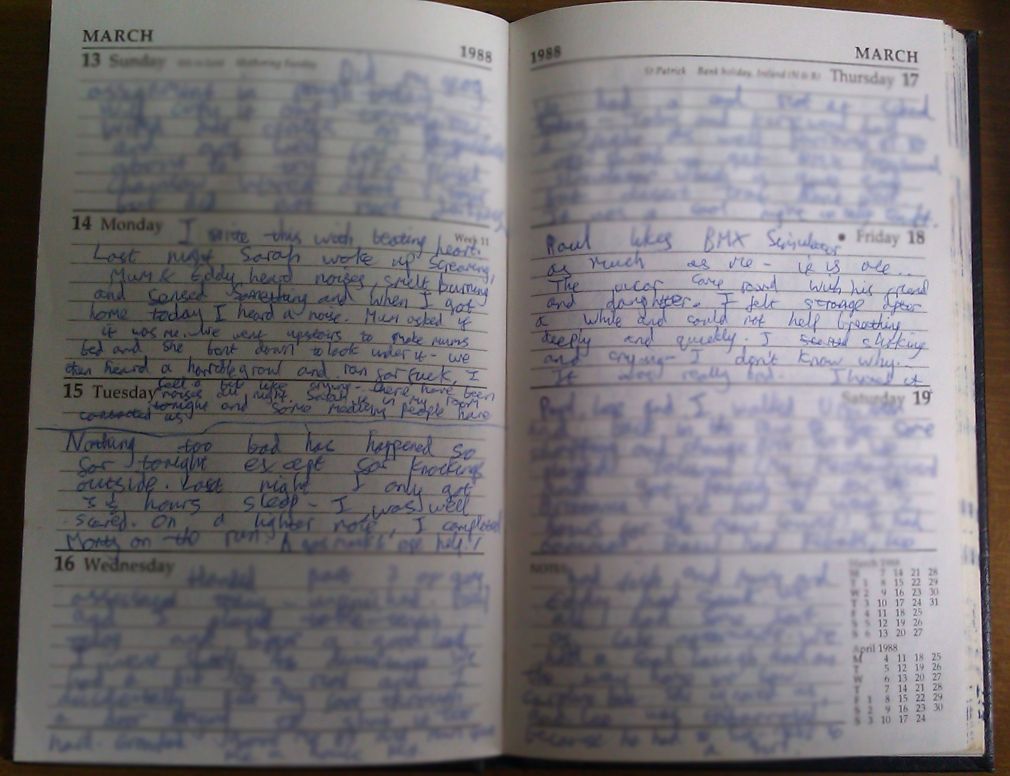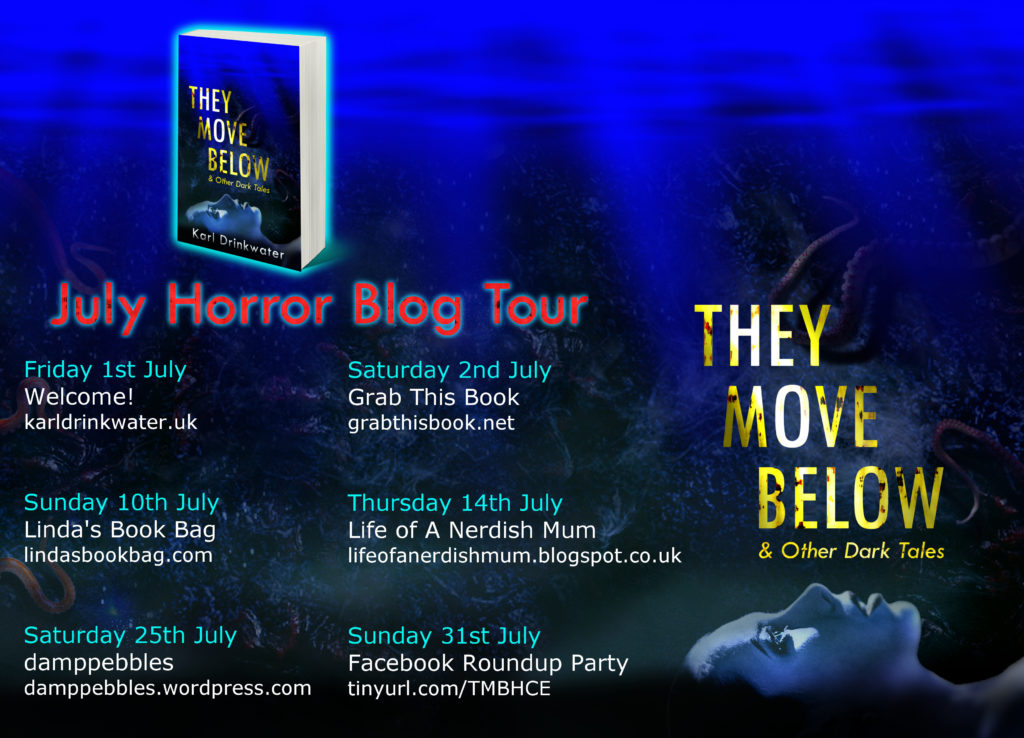Last month I raved in my review of the fabulous “slasher movie” book Security by Gina Wohlsdorf. You can read my review here.
I have often discussed my love of a “good” serial killer thriller and ask guests to discuss why we crime readers like books featuring serial killers. Today I am delighted to welcome Gina Wohlsdorf to Grab This Book – Gina, on hearing about my fascination with these stories, kindly sent this fascinating post for me to share.
 By Gina Wohlsdorf, author of Security (Algonquin, £17.99)
By Gina Wohlsdorf, author of Security (Algonquin, £17.99)
On July 3, 1954, Dr. Sam Sheppard and his wife, Marilyn, hosted a neighbor couple for a late movie at their home in Bay Village, Ohio. Sam fell asleep in the living room, so Marilyn escorted their guests out and bid them good night.
Sam’s story goes like this: he woke in the early hours of July 4. Noises were coming from upstairs. He looked around and found himself still in the living room; Marilyn must have left him there to sleep. He went upstairs and saw a shadow standing over his wife. He fought the assailant, received a fearsome blow on the back of his head, and blacked out. When he came to, he took Marilyn’s pulse and discovered she was dead, then checked on their son in the next room. The boy was unhurt, sound asleep. Sheppard heard a noise downstairs and went to investigate. He saw his wife’s attacker near the back door. Sheppard chased him outside, down to the lakeshore, fought the man again, and was knocked unconscious. Again.
Dr. Sam Sheppard was convicted of his wife’s murder later that same year. Many called it then, and many call it now, a gross miscarriage of justice.
And yes, the police investigation was sloppier than a first-grader’s doodles. And yes, the trial was a carnival with a preening prosecutor who’d make his name and win elected office on his brutal, biased, media-decided case. And yes, F. Lee Bailey would get the conviction rightly overturned twelve years later by no lesser authority than the United States Supreme Court.
Most interestingly, Sam’s surviving son — in a lifelong crusade to exonerate his father — would turn history’s attention to hired man Richard Eberling, who did a few chores around the house for Marilyn Sheppard. Thirty-five years after Marilyn Sheppard’s death by bludgeoning, Eberling would be convicted of killing an elderly woman. By bludgeoning. The specifics of the two modi operandi are virtually identical.
Except there’s a problem: Sheppard’s version of events still sounds ridiculous. It neatly splits, with an almost mathematical precision, the thinking person’s dual reactions of: 1) that story is so bad he must be lying, and 2) that story is so bad he can’t be lying.
True crime devotees often balk first at the idea Sheppard’s wife let him snooze the night away downstairs, but I can let that go. Married people develop odd hinterlands of permissible behavior. Plus, he’s a doctor. He gets called away a lot, Marilyn is used to sleeping alone. Fine.
The next place people get hung up is on that initial fight — if he sees an intruder hurting his wife, why wouldn’t he run, call the cops? Again, I have no issue here. I think plenty of husbands would throw down if confronted with this situation. The killer’s blood is up, he’s already inflicting blows, so Sheppard taking a knock to the head and blacking out, I buy it.
So far, so good. Here’s where the story goes bad.
Go on a journey with me. The horror thus far recounted has happened to you. You awaken dizzy, in pain, off-balance. You check your wife’s pulse and can’t find one. You bolt for your sleeping son, and you find he’s okay. You hear a noise downstairs. What do you do next?
Let me reiterate: your wife is dead, your son is fine, and you are hurt. A murderer is downstairs.
It flies in the face of everything I know about human instinct to posit for one bald second that anyone would race down and try to nab the bastard. Evolutionary priority is to protect the offspring, and especially if you’re injured (which Sheppard was, badly — he had mild trauma to his cervical spine), you keep quiet and listen for the killer to leave.
But Sheppard’s disoriented, right? He’s out of it, so he chases this guy, gets knocked out again, awakens with his legs in Lake Erie.
We go from there, to a public outcry, to a slipshod trial, to a verdict overturned by the highest court in the land. DNA testing decades after the crime (and decades after Sheppard died of liver failure, having turned to the bottle to assuage either his crippling guilt or his life’s lottery-winning bad luck) successfully linked Eberling to Marilyn Sheppard’s brutal murder, because she died biting a nice big chunk out of the handyman’s hand.
And yet. The dog didn’t bark. There were no signs of forced entry. The defense’s motive for the murder (escalated burglary) doesn’t dovetail very nicely with the meager handful of stolen items recovered from shrubs on the Sheppard property.
What makes the most sense to me, purely on the basis of available circumstantial and forensic evidence, is that Sheppard hired Eberling to kill his wife. Sam had been having an affair with a nurse for years. Testimony from friends suggested Marilyn was sick of it. Spouses have been murdered for less.
Only, if you hire someone to kill your wife, and you leave the door unlocked, and you find a way to shut the dog up, and you tell your hitman not to touch your kid . . . then your next step is to swear up and down to the cops that you chased him (twice!), got knocked out (twice!), it must have been a burglary gone bad, Officer (and you throw a few trinkets by a bush when there’s a lake a few feet away!) — that’s your master plan?
His story’s too unlikely to be false or true.
So where does that leave us? It leaves us, in the context of Marilyn Sheppard’s murder, in a perfect middle ground between incredulities. But it does offer us an excellent explanation as to why people enjoy reading fiction about killers.
People enjoy reading fiction about killers because killers in fiction make sense. Art is the imposing of order on chaos. It is taking sounds from their random occurrences in reality and arranging them into music. It is selecting feelings from their chaotic jumble inside us and presenting them in harmonious drama.
It is selecting events from the maelstrom of all that is possible, creating human characters from the infinity of characteristics at our disposal, and organizing them in narrative form in such a way that the terrifying high-wire act of our ostensibly ordinary days seems slightly more manageable.
Whether Sam Sheppard had something to do with his wife’s murder or not, his story is scarcely endurable. Imagine, either way. It’s over sixty years after the fact, and I still can’t decide if the man was a murderer.
Even murderers who we know did it don’t make sense. Berkowitz is this pathetic, dumb doughnut of a human being, yet he held New York hostage for months. Bundy murdered over thirty young women, quite likely triple that, yet he was smart, attractive, charismatic — why’d he need to kill?
And Dahmer: I mean, what the hell happened there?
A writer, if they made Dahmer up, could tell you. But it’s the fact that writers can tell you that makes what they tell you inaccurate. They don’t know. I don’t know.
When a real-life killer does try to tell you, he can’t, or he can’t/won’t. Berkowitz blamed a dog. Bundy spoke in bland hypotheticals, determined to the end not to self-incriminate.
Dahmer: for real, what the hell happened there?
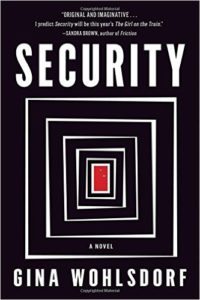 Jack Henry Abbott, brought to you by Norman Mailer, actually did get an opportunity to write a book, but it says little to nothing about the killing impulse. It says a great deal about Marxist politics and uses them tirelessly to show that nothing Abbott ever did was ever his own fault, ever. Perhaps that is the closest we can get to understanding. Perhaps it’s an uncanny capacity for inner elisions that makes impulse control not only impossible, but irrelevant.
Jack Henry Abbott, brought to you by Norman Mailer, actually did get an opportunity to write a book, but it says little to nothing about the killing impulse. It says a great deal about Marxist politics and uses them tirelessly to show that nothing Abbott ever did was ever his own fault, ever. Perhaps that is the closest we can get to understanding. Perhaps it’s an uncanny capacity for inner elisions that makes impulse control not only impossible, but irrelevant.
For me, to be frank, that’s close enough. The number-one complaint I hear about my debut novel, Security, is that I never explain the Killer’s motives. I don’t fold him comfortably into some larger plot. I don’t even reveal his face. I ask my reader to be content with not knowing, and it’s possible they’re correct in seeing this as a betrayal.
But then I imagine I’m Marilyn Sheppard’s neighbor. She’s telling me good night on her front porch. Her smile is lovely as she offers a quiet apology for her husband, deeply asleep — or deeply faking it — behind her. I tell her no problem, it happens, sleep well.
I hear the grind of gravel under my practical ‘50s pumps, hear the Sheppards’ door closing behind me. The night is summer-warm, summer-quiet. Crickets chatter in the green, lush lawns of boring ol’ suburban Ohio. I’m tired, thinking of bed. Thinking of tomorrow, a to-do list forming. I take my husband’s arm for balance, for warmth, and I don’t think to relish — why would I? — the last night I’ll travel to dreams on the soft, delicate lie of certainty.
Security is out now in Hardback and Audio CD
Gina Wohlsdorf was born and raised in Bismarck, North Dakota. An insomniac in childhood, she crouched over her pink desk in the wee hours and wrote illustrated storybooks that no one but she could follow. Her father, a high school English teacher, began bringing Gina the novels he was teaching and giving her quizzes on the material to demonstrate to his students that an eleven-year-old girl could ace the tests they were failing. Once she got to high school, she attempted to write a novel and discovered, to her embarrassment, that she was still the only person who could follow it. She triple majored at Tulane University. Following graduation, she lived in northern Florida, southern France, and Minnesota. She held a variety of jobs that afforded her time to write, including bookseller and massage therapist. She found, after two decades of trying, that her novels had begun to make sense. She earned an MFA in Creative Writing at the University of Virginia. She currently lives in Colorado.
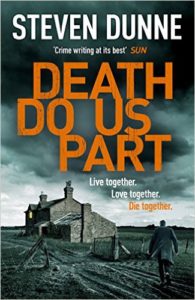 Even death cannot part these couples . . .
Even death cannot part these couples . . . 

